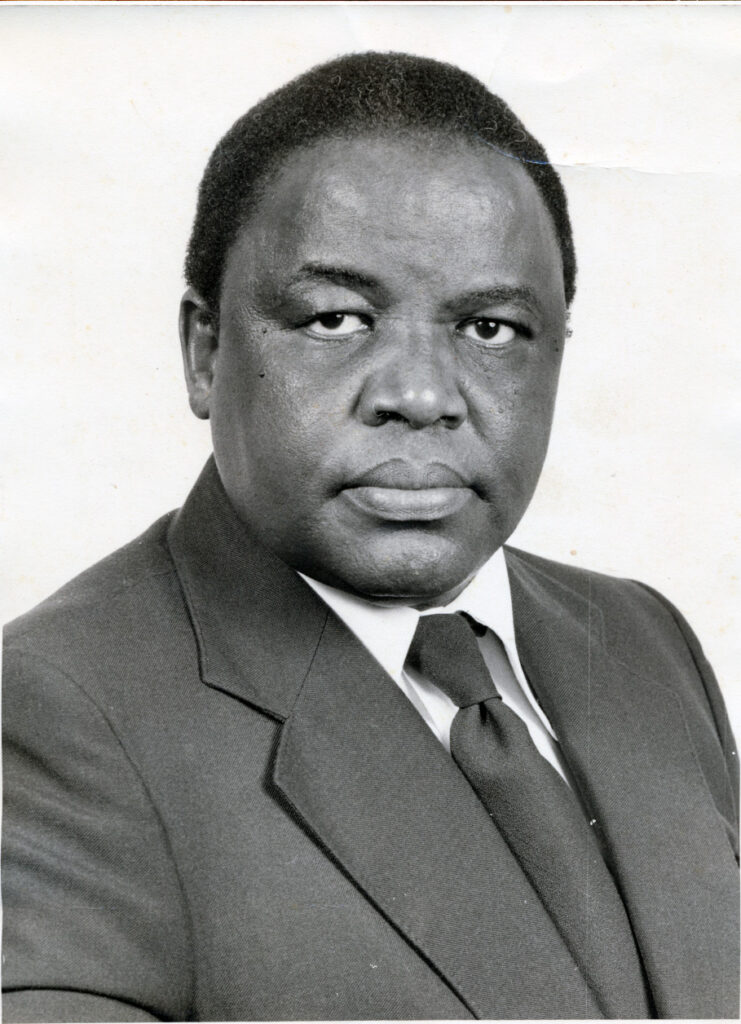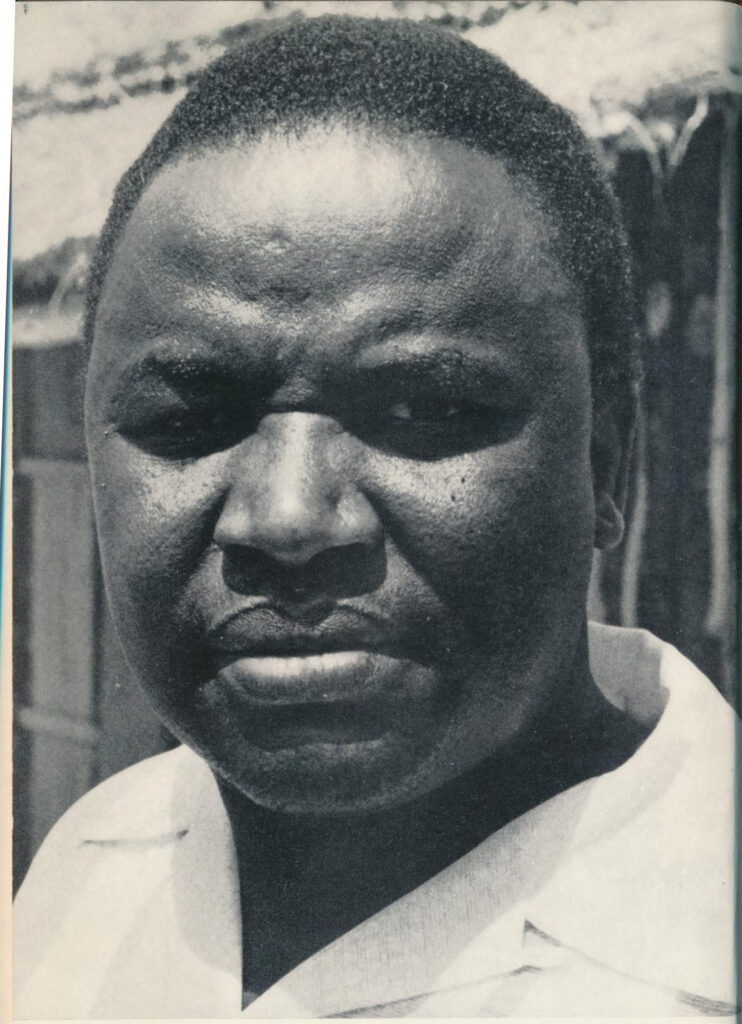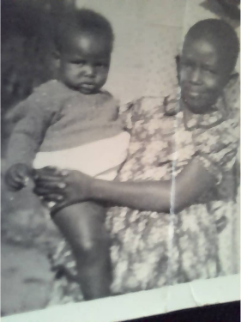Sithole was born on July 20 1920 in the rural area of Nyamandlovhu in Rhodesia, now Zimbabwe. He was the oldest of nine children born to Jim Chandiwana Sithole from Chipinge and Siyapi Tshuma from Nyamandlovhu, both districts in Zimbabwe.
At 15, he was admitted to Dadaya Mission, a New Zealand Church of Christ school run by Garfield and Grace Todd who recognized his intelligence and sponsored his education. Garfield Todd was later to become the Prime Minister of Rhodesia between 1953 and 1958. After completing his studies at Dadaya, he undertook teacher’s training at Waddilove (Methodist) mission school in the late 1940s. He went on to teach at Tegwane mission (Methodist) before he returned to Dadaya then Ngezi mission (African Reformed Church).
While at Ngezi mission, he pursued private studies which resulted in his obtaining a B.A degree by correspondence from the University of South Africa. He also began writing books during this time. In 1953, Sithole and family moved to Mt Selinda mission (United Church of Christ) in Chipinge where he continued to teach and was also a lay preacher. The community subsequently recommended him for theological training at Andover Newton Theological Seminary in Massachusetts, USA, a graduate school and theological seminary affiliated with the American Baptist church and the United Church of Christ. Today the school is part of Yale university.
Rev Sithole returned to Rhodesia in 1957 as an ordained Reverend and became the headmaster of Chikoore Mission (United Church of Christ) in Chipinge. In 1959, he was elected the president of the Rhodesia African Teacher’s Association.
A Prolific Author
In 1956, Rev Sithole published Umvukela wamaNdebele, his first book in a native African language. It told the story of two wars the Ndebeles fought against the colonizers in 1893 and 1896. The book also chronicles how the Ndebele leader, Lobengula evaded capture in defeat. Umvukela told a story of humanity, compasion and unity abundant amongst the Ndebeles.
Later in 1959, Rev Sithole published African Nationalism which propagated his views on African liberation. In this book, Rev Sithole asserts that each post-independent African nation state ought to define “maximum political satisfaction” for itself using the experience and resources at it’s disposal. In his own words, “no independent country should dance to the tune of another country – African or non-African”.
In his lifetime, Rev Sithole published twelve books and booklets whose titles includes Letters from Salisbury Prison; Obed Mutezo: The Mudzimu Christian Nationalist,; Roots of the Revolution; Frelimo Millitant: The story of Ingwane fromMozambique, An ordinary yet extraordinary man awakened; The secret of America’s success: Africa’s great hope.

The Nationalist
In 1960, Rev Sithole was elected treasurer of the National Democratic Party (NDP). Because of his political activism, he was forced to resign from his teaching positions by the Rhodesian government. His time away from teaching allowed him to become a full-time preacher while being politically active as well. In 1962, Rev Sithole left his position as a pastor in the church to entirely focus on politics. In his own words, “It is difficult for me to be ministering to half slaves. I feel I must give more of my services to the nationalist movement which is working for the total liberation of Zimbabwe. But this does not mean I am severing my relations with the United Church of Christ or Christianity itself, I am still a strong member”.
Following the banning of the National Democratic Party, he became the chairman of the Zimbabwe African People’s Union(ZAPU) which subsequently split the following year leading to the formation of the Zimbabwe African National Union (ZANU). He was elected as the founding president at the inaugural congress held in Gwelo. It was at this congress that the Reverend coined the phrase “We are our own liberators”. Within three months of this, May 1964, Rev Sithole was incarcerated for the next eleven years. Upon his release from prison in 1975, after the assassination of Dr Hebert Chitepo, chairman of ZANU, he moved to Lusaka, Zambia to continue leading ZANU. Subsequent internal disagreements in the military and political leadership of the party led to his unconstitutional ouster as the leader of ZANU.
In Independent Zimbabwe
In 1980, he ran in the presidential election race under the banner ZANU Mwenje against other leading nationalist contestants and lost to Robert Mugabe of ZANU-PF. Sadly, after an attempt on his life in 1982, he went into self imposed exile where he continued to write and advocate for democracy in Zimbabwe.
He returned to Zimbabwe ten years later and was elected as a Member of Parliament, he was one of the few opposition MPs. As a Member of Parliament, he continued to fight for democracy, justice and human rights which led to the confiscation of his Churu farm, among other things and a treason trial that was never concluded.

A Family man
Sithole’s Family
Reverend Sithole and his first wife Canaan Alice Sithole (nee Mafu) had six children whose names gave an insight into their vision of the life they were fighting for in Rhodesia.
Siphikelelo- perseverence
Sifiso- wish
Dingindlela- find a way
Zibonele- do it yourself
Sikhululekile- we are free
Mpilwenle- beautiful life
He later remarried Vesta Sithole (nee Saungweme), who passed away in 2012. Between them, they had no children.


